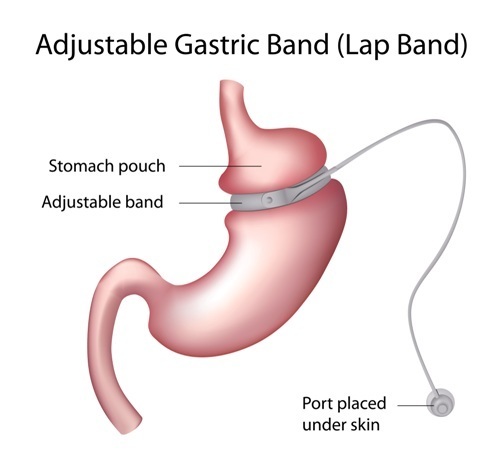While personal accounts of bariatric surgery complications are easy to find on the internet, studies show that over the past few years there has been a clear decline in the rates of adverse events following bariatric surgery. Now, researchers are discovering that hospitals that perform the surgical procedures more frequently are seeing the best results thanks to increased experience and resources.
Results from a recent study published in the journal Surgery for Obesity and Related Diseases showed that overall outcomes for bariatric surgery improved over a period of five years at both high- and low-volume hospitals performing the procedures, but that hospitals performing more than 125 procedures a year are experiencing fewer serious complications than low-volume hospitals performing less than 50 procedures annually.
About the Study
In order to examine whether the relationship between hospital volume and adverse events are related in the era of laparoscopic bariatric surgery, in the study titled “Hospital volume and outcomes for laparoscopic gastric bypass and adjustable gastric banding in the modern era,” Oliver A. Varban from the University of Michigan Health Systems in Ann Arbor, Michigan and colleagues analyzed State Inpatient Databases (SID) for 12 states between 2006 and 2011.
The study included a total of 446,127 patients, and the researchers looked at hospital discharge data to assess changes in re-operations, mortality, and serious complications involved in weight loss surgery over time. The team also assessed the impact of procedure volume on outcomes in patients who underwent either laparoscopic Roux-en-Y gastric bypass (LRYGB) and laparoscopic adjustable gastric band (LAGB).
Using logistic regression to analyze the data, the team of researchers stratified hospitals’ operative volume, and adjusted for procedure-type and patient characteristics. Then the researchers examined the relationships between hospital volume and outcomes during three 2-year periods, with results showing that the rate of re-operations and mortality were low, and that there were no statistical significant differences between the highest and lowest volume hospitals for both LAGB and LRYGB.
Results Show High-Volume Hospitals Have Fewer Serious Complications
When the researchers examined the relationship between the ratios of volume and procedure outcomes, they found that the ratios for serious complications at the lowest volume hospitals were higher in comparison with the highest volume hospitals for all three periods of time. However, the rate of re-operations and mortality for both LAGB and LRYGB were equally low in both high- and low-volume hospitals performing the procedures.
For bariatric weight loss surgery as a whole, this recent study adds to the evidence that the procedures are becoming increasingly safe over time. However, the study also suggests that the experience gained at high-volume hospitals performing the surgeries more frequently can further contribute to patients experiencing better outcomes and fewer serious complications.


